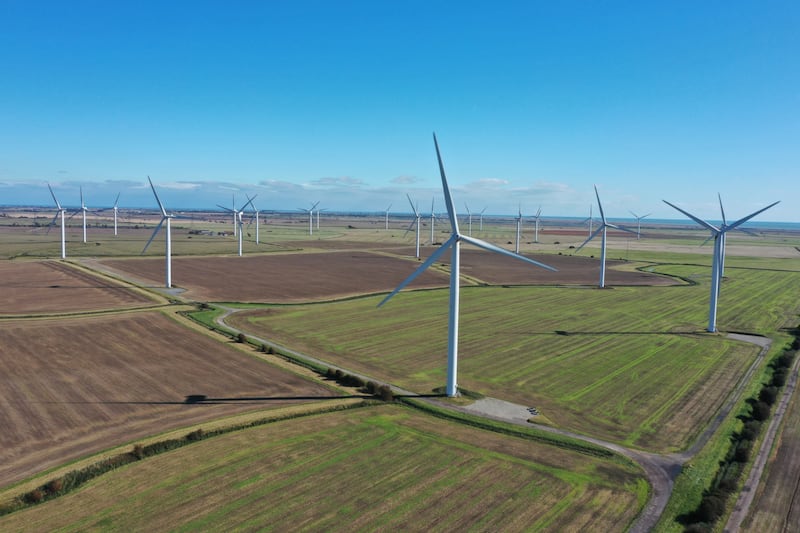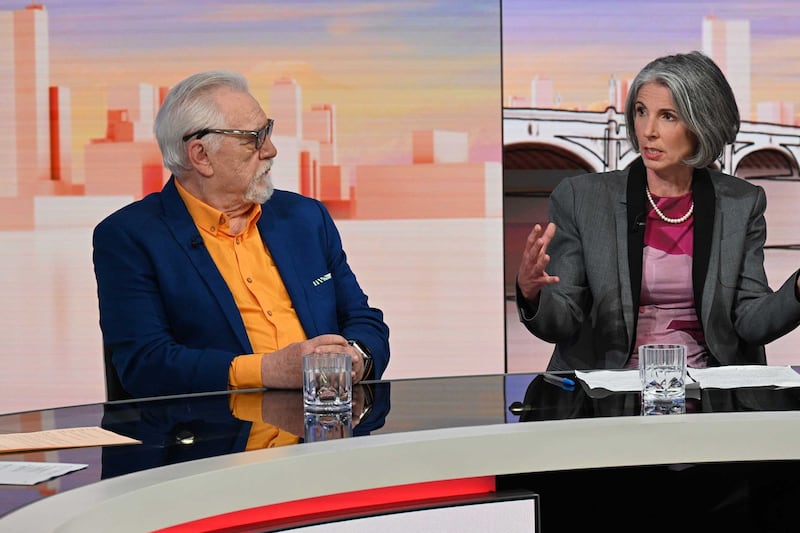BUSINESSES in Northern Ireland simply cannot afford for the next phase of Brexit to drain investment and growth at levels seen over the past three years, the head of the CBI has told a Belfast audience.
And the lobby group's president John Allan insisted: "We need urgent clarity from the UK government about how they intend to protect Northern Ireland’s place in the internal market."
Speaking at the organisation's annual lunch in the Culloden Hotel, he added: “If common ground can be found on Brexit, just imagine what we could achieve with the enormous potential of an all-island economy.
“Earlier this month we looked at exactly how businesses in the north can build greater economic co-operation with the Republic by connecting road and rail across the north and south, pushing towards zero carbon, the electrification of vehicles and public infrastructure on both sides of the island.
“This could be our compelling vision of economic inclusion. Supporting a population of 10 million people across the island - improving lives and tackling deprivation in both jurisdictions. This is our chance to get it right.”
But Mr Allan, who is chairman of both Tesco and Barratt Developments, said it needed power-sharing in Stormont to help make it happen, asking if there isn't a twinge of embarrassment or shame among politicians about the long absence of the Executive.
He said businesses in the north want to protect their position in the UK’s internal market and across the island of Ireland so that they can invest, grow and contribute to their local communities.
“Businesses will welcome steps towards a deal that guarantees the rights of four million citizens living abroad in the UK and EU and opens a pathway to a new UK-EU partnership.
“But for them it’s not as simple as ‘getting Brexit done’. Firms have known for some time that this is just the start of years of further talks, treaties and tête-à-têtes. But companies have serious concerns about the current direction of the future relationship.
“The political declaration, in its current form, would end decades of free and frictionless trade with our largest trading partners, forged by firms big and small. It would add huge cost and complexity across some of the UK’s world-leading industries. And it falls a long way short on services, which make up just under 80 per cent of the Northern Ireland economy.”
Mr Allan also warned of issues around access to talent, stressing: "Northern Ireland needs people".
He said: “Some 96 per cent of our members here say skills shortages are a growing problem, with a particularly concerning gap in digital skills - cloud computing, data analytics and other technical subjects. A need that will surely grow in coming years.
“So how do we meet this challenge? One solution is a digital skills action plan which includes removing barriers in the existing immigration system, harnessing the insight of businesses to understand skills needs, and getting the right funding to the right places, particularly in further education.”








